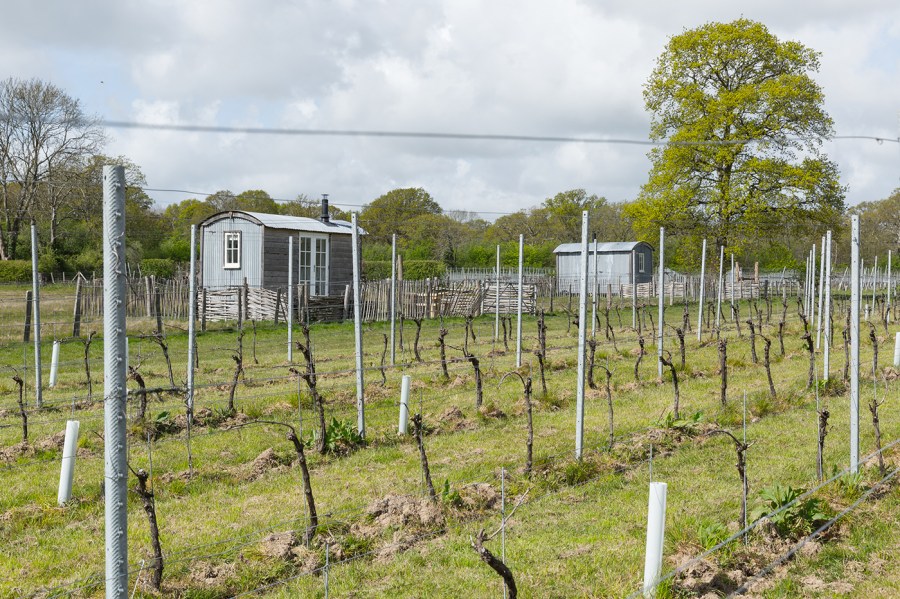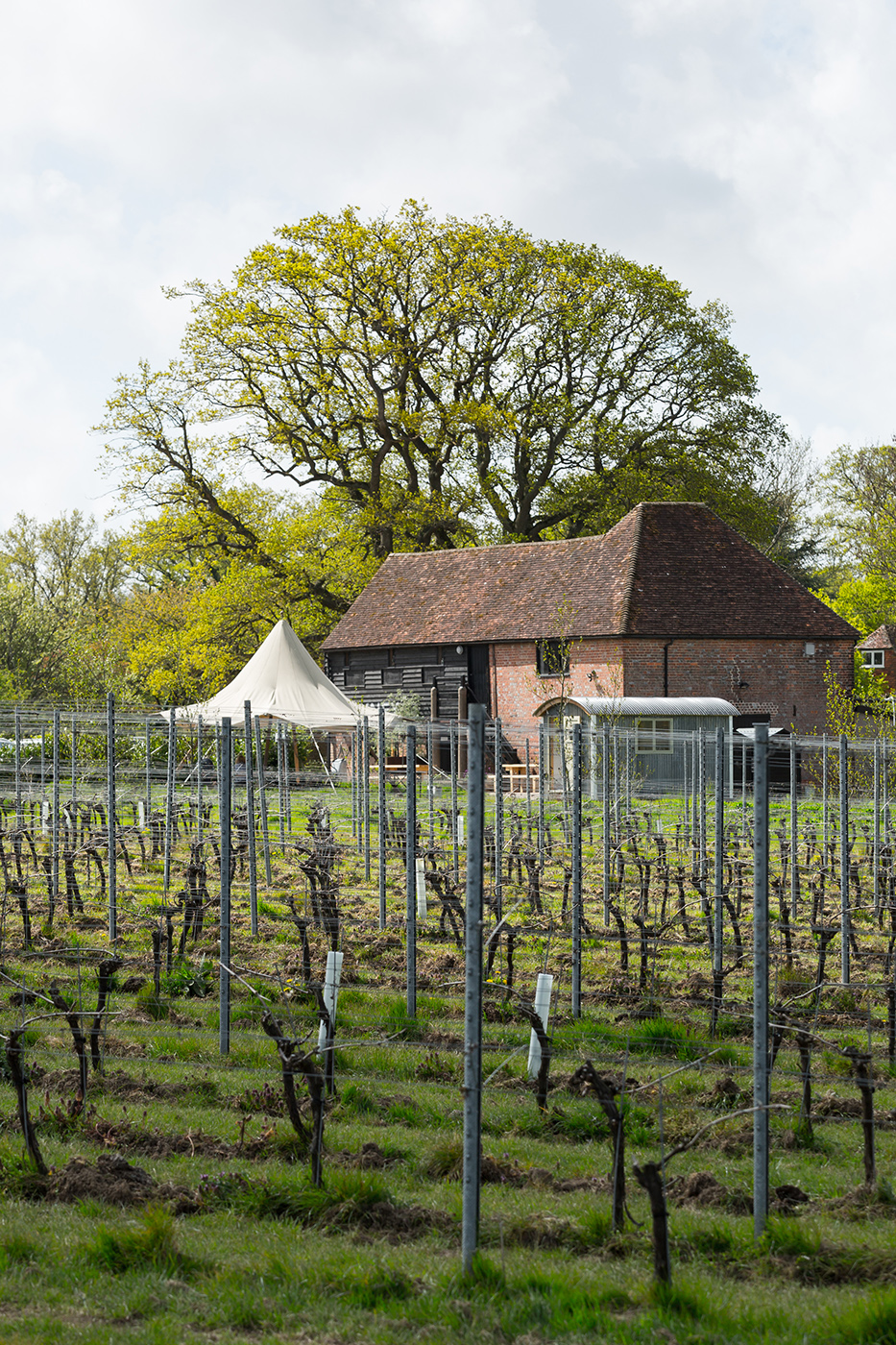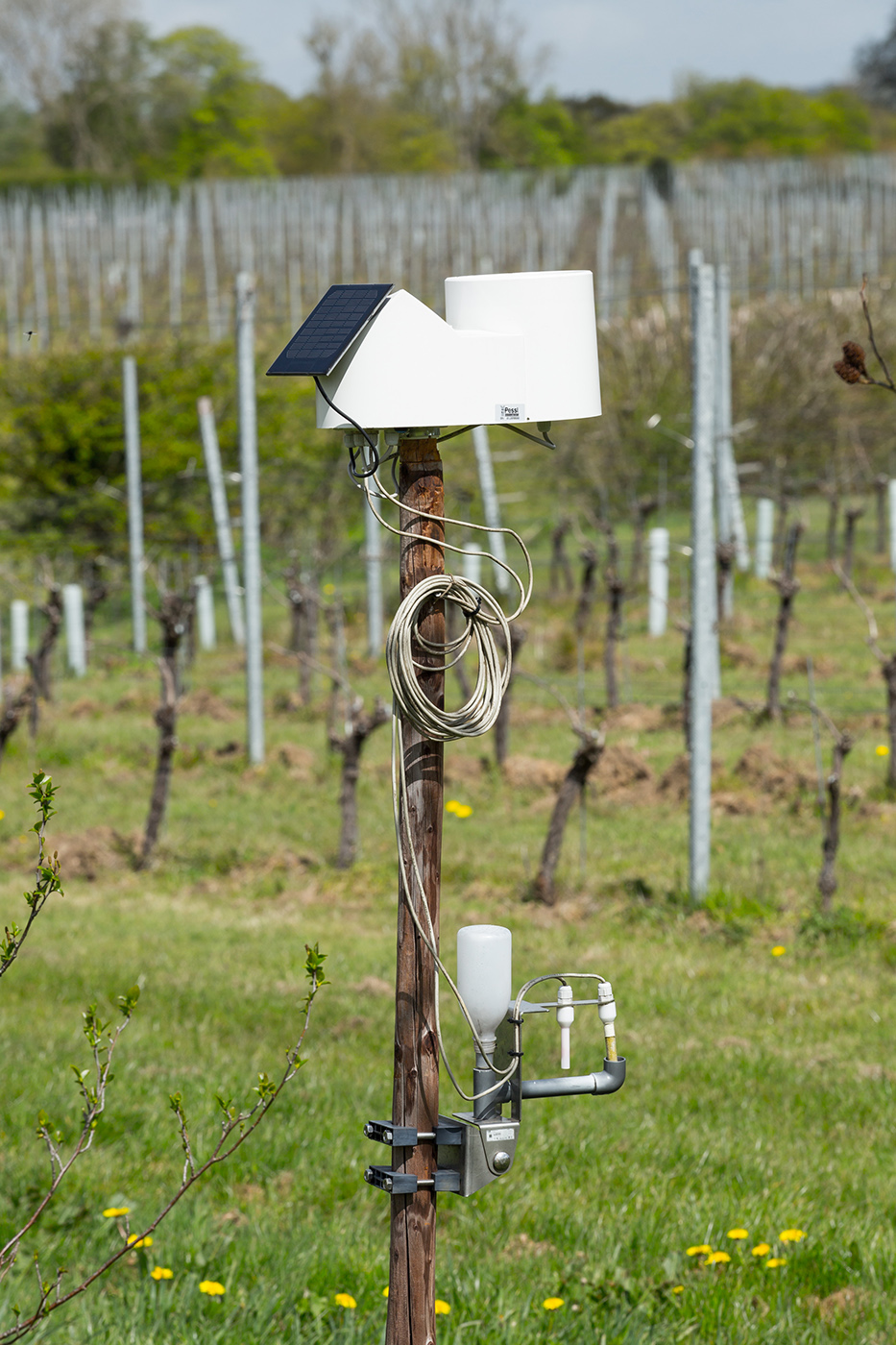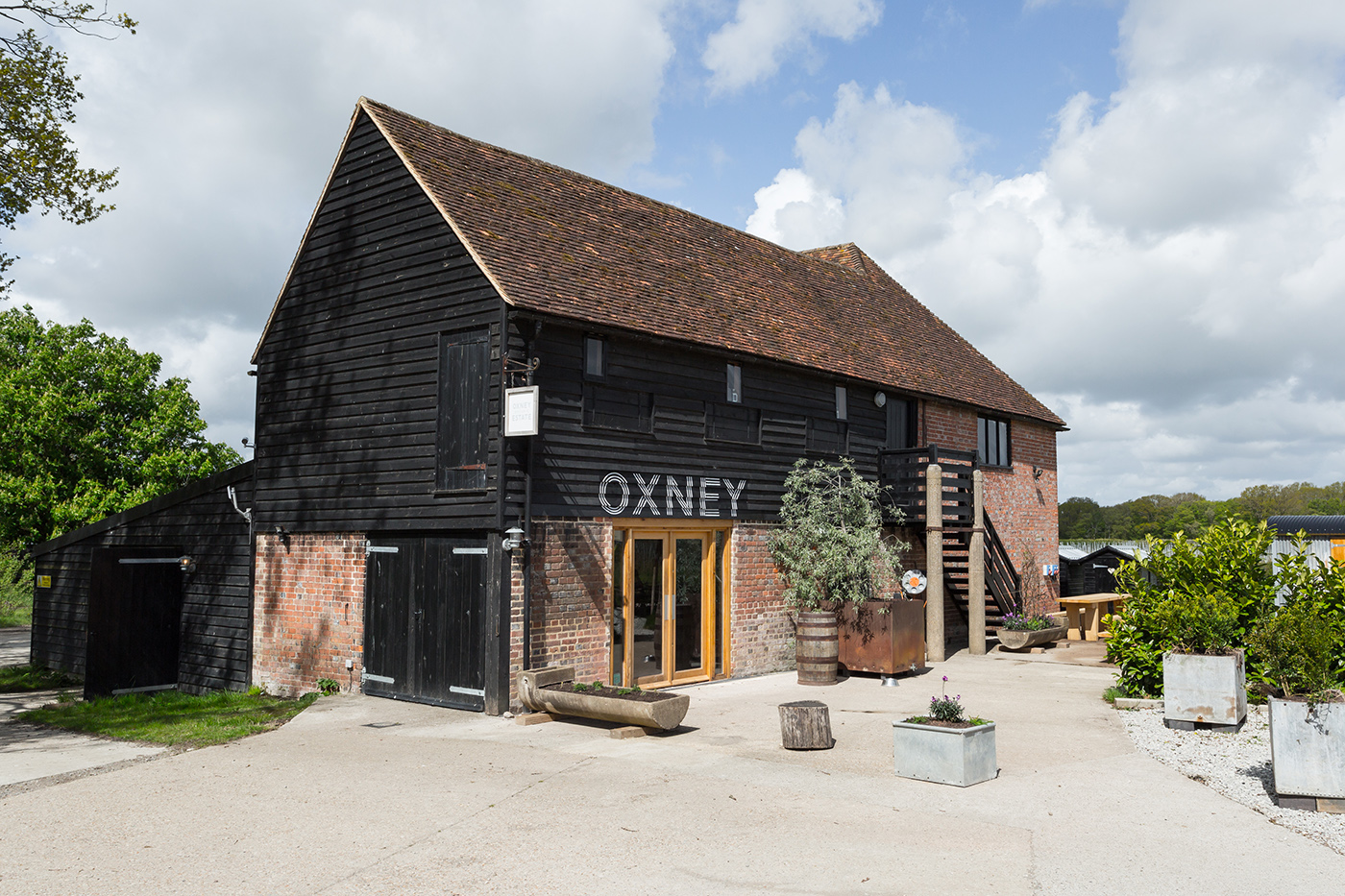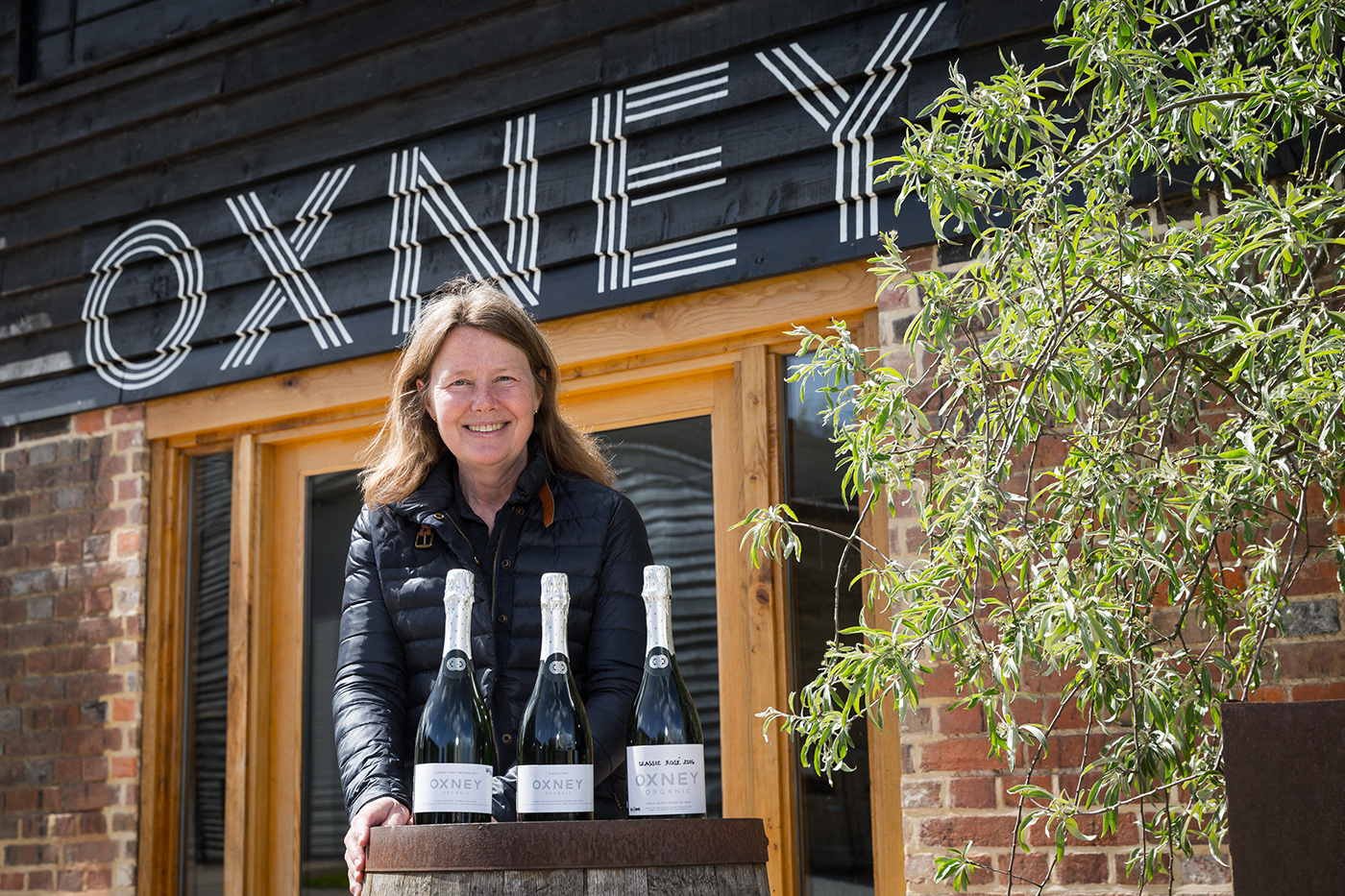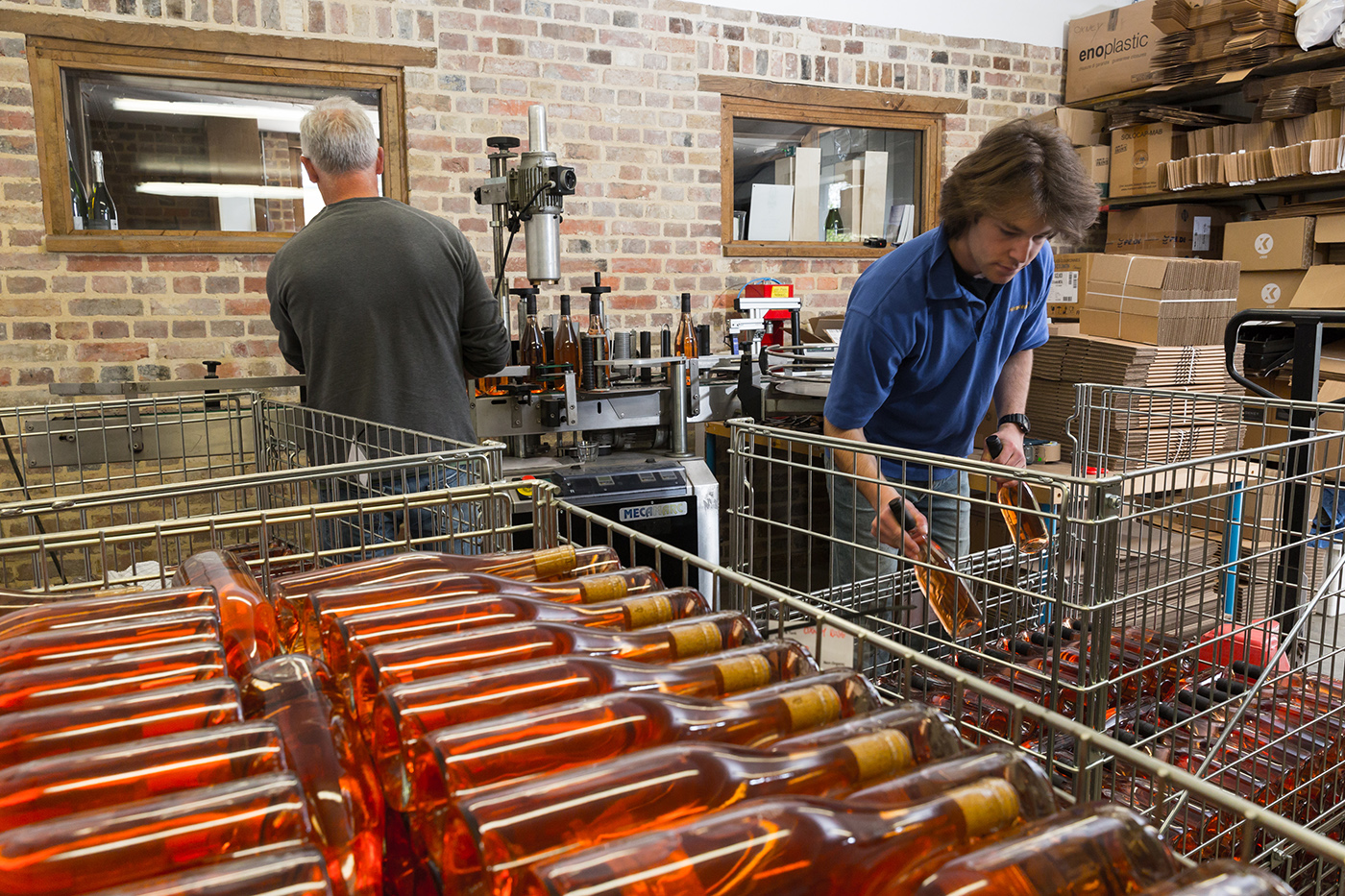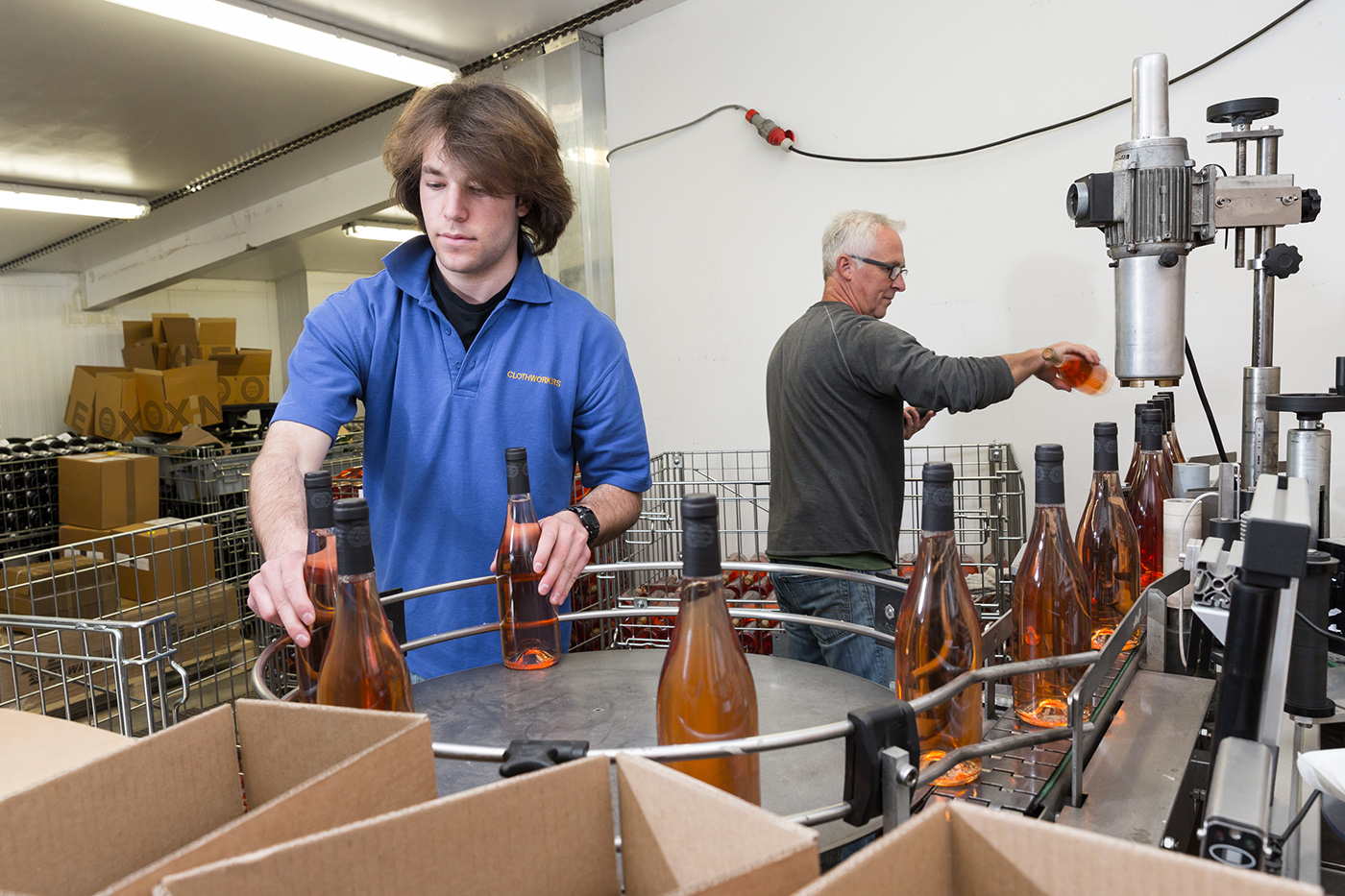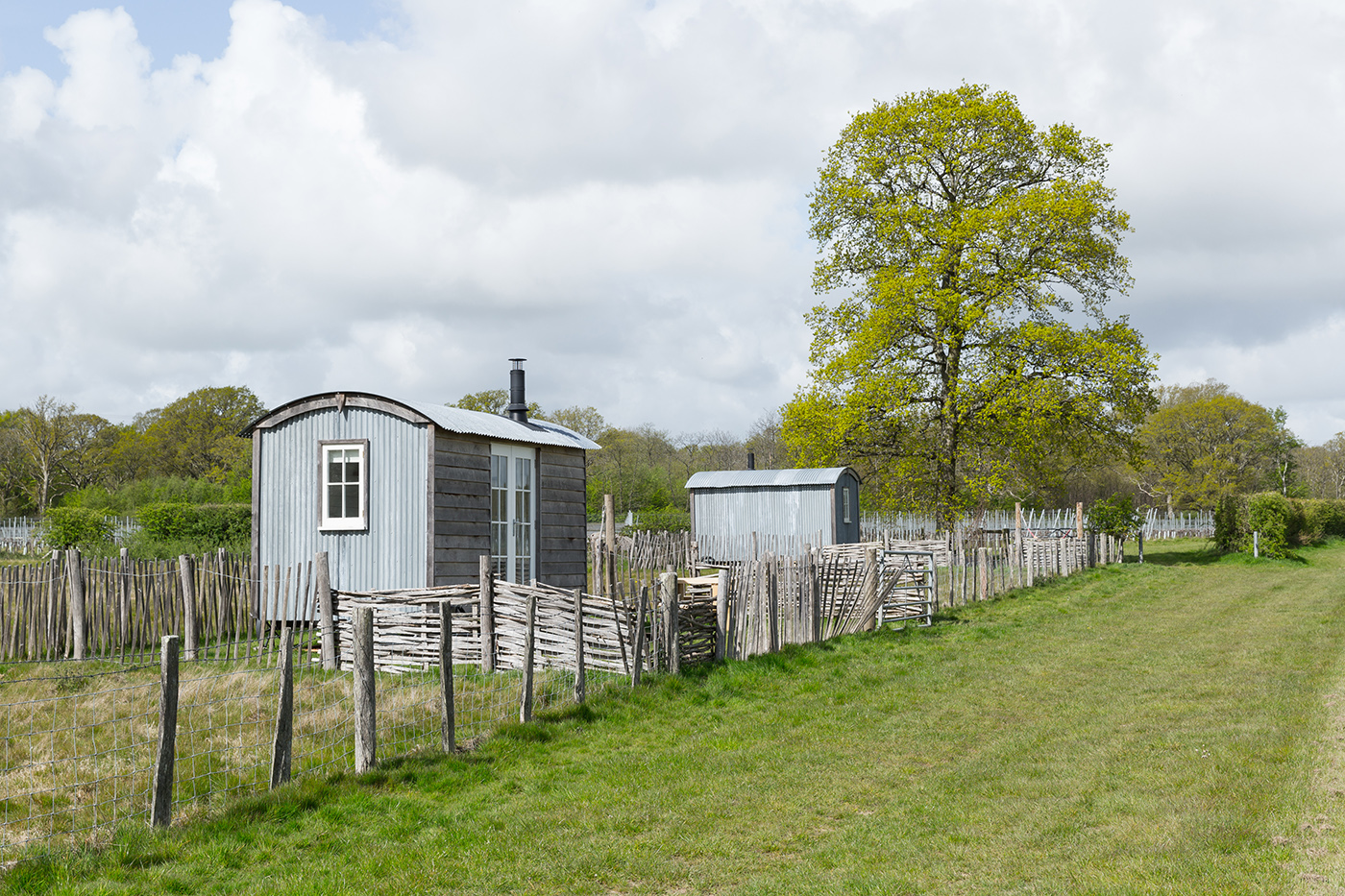Quietly getting on with producing some of the country’s top award-winning wines is Oxney, the UK’s largest single organic estate, tucked away near Rye in rural East Sussex. The focus is on organic production, low intervention winemaking, preserving the soils and treading lightly on the environment. Many may see organic production as an impossible challenge – but Vineyard finds out how Oxney’s resourceful and imaginative approach is resetting the expectations of organic wine production in England – with soils, sheep and silence.
Before setting up Oxney Organic Estate, co-owner Kristin Syltevik used to make a lot of noise as founder of a large international PR agency for new technologies, that flourished after the dot com crash. But now Kristin hardly uses her PR skills – even the Instagram account is quiet. “We don’t like to make a lot of noise, and I don’t have time. At Oxney we prefer to concentrate our efforts on growing our grapes and creating beautifully expressive wines. But my background does help, I know my brand, its organic and sustainable – I live it from the bottom up in everything I do. If I couldn’t do what I do organically I wouldn’t do it – as it’s core to my values and principles,” explained Kristin.
The vineyard is named after the Isle of Oxney and is part of a large organic 800-acre farm. It was established in 2012 and is now approaching its eighth harvest. Co-owner Paul Dobson, a former professional golfer, also manages other nearby farms. Kristin and Paul started farming in 2009, but neither had a background in agriculture. “We had to learn on the job, we read a lot and constantly ask questions. I think the lack of tradition has meant that we are more open to learning, more resourceful and inventive. We are always looking for new technologies and innovative approaches. For example, we have just bought a new drill for the farm, a System Chameleon, which is guided by GPS and drills in exact spacing allowing for precision inter-row hoeing post-planting, which avoids the use of herbicides,” commented Kristin.
A closed-loop system
The 35 acres of vineyards at Oxney are Soil Association certified, and planted with Chardonnay, Pinot Noir, Pinot Meunier and Seyval Blanc. “All our wines are estate grown, we do not buy in grapes, so all our fruit is site-specific. Rather than inoculate the wines with commercial yeasts, we allow spontaneous fermentations by natural yeast from the vineyards – this augments the sense of terroir, producing wines that are unique to our site and have individual character,” explained Kristin.
Oxney aims to achieve a ‘closed loop’ system of nutrition in the vineyard. “Our neighbouring farmer uses the vineyard to graze his sheep during the winter, which keeps the grass and weeds down – and of course they add fertiliser as they go. The farmer also pays us for the winter grazing in muck – he gives us his farmyard manure, which we rot down and add to the vineyard. This means that over winter we are building the level of nutrients that the vines will need during the growing season, restoring the soil and avoiding the need to use any additions to target nutritional deficiencies during the growing season. Our team of woolly mowers keep the grass short which allows the cold air to flow out of the vines and hopefully avoid any damage to buds during spring frosts,” commented Kristin.
In all decisions the team at Oxney try to choose the most environmentally friendly option. “We do not see the need to cultivate and plant a cover crop, involving extra tractor work, as we already have plenty of self-seeding annual grasses in our vineyard alleys. We allow grass to grow as they help to maintain soil structure – and they stop the vineyard turning into a mud-bath!
“We also compost our marc from the winery and add to the vineyard – which is like gold. This year we’re mulching all of the prunings from the 2020 harvest to return the nutrients that are stored in these canes back to the soil,” added Kristin.
Oxney do not use herbicides and manage weeds mechanically not chemically. “We have a German manufactured weeder that lifts the weeds, rotovating and aerating the soil as it goes, bringing oxygen to the soil aerobic organisms and suppressing the harmful anaerobic ones. This also allows waste gases arising from the breakdown of the manure and organic matter to escape,” explained Kristin.
Challenges of organic
Organic wine production is hard, but it is possible, explains Kirstin. “The challenges are disease and weed control. It’s about being diligent, observant, and using the right control methods at the right time – you can’t stand still or rest on your laurels you always need to be a step ahead and be willing to try new techniques. We use Trichoderma on our pruning wounds and would like to trail its use against downy mildew in the future. We have a limited armoury: copper and sulphur, potassium bicarbonate and biological control agents such as Bacillus subtilis – which out completes Botrytis. John Buchan provides us with great advice and suitable products. However, it is the cultural methods of control that are most important in managing diseases – you need to know where your disease pockets are and be very good at canopy management,” commented Kristin.
Oxney is fortunate having a low annual rainfall. “It’s super-dry here, due to a rocky outcrop near Hastings that causes most of the rain to be dumped there – sadly for Hastings! We are also lucky that this is not an early site, and generally have a later bud burst, which this year has thankfully meant we have mostly escaped the late spring frosts. But I do think UK vineyards have to take frost on the chin – as to protect against frost is expensive and not always environmentally very kind,” added Kristin.
“Going forward our main focus will be soil improvement. I love the quote from James Millton “We’re not standing on dirt, but the rooftop of another Kingdom.” We chose organic for ethical reasons; we couldn’t bear the idea of contributing to the destruction of habitat, wildlife and soil health. We need to respect this underground world, and it makes sense to allow it to work for us. We don’t use chemicals which damage soil life, we look after the soil organisms with manures and composted marc, which in turn builds nutrients, we keep the soil covered and encourage biodiversity around the vineyard. We have found that our vines are healthier, stronger and more resistant to diseases year on year – and producing fantastic quality fruit.”
Going wild and low
The winery is in a converted Grade II listed square oast house, but with state-of the art equipment, including temperature controlled tanks, use of inert gases and a gentle pneumatic press. “Our sustainable, low-intervention approach, minimising inputs, continues into the winery. We favour wild ferments, no filtration and minimal use of SO2,” explained Kristin. “We used to have a full-time winemaker, but we now share our winemaker, Salvatore Leone, with a couple of other vineyards – which makes such economic sense and is far more sustainable for the business. He is also an excellent winemaker. The wine is made organically, so we need to comply with a series of regulations. Our winemaking is a natural process, and our philosophy is to have as little intervention as possible. To do this you need great quality fruit – and it’s a common but true statement that great wine is made in the vineyard. The fermentations are mostly spontaneous with wild yeasts that come from the vineyard and this summer we will be doing a study to see if we can find the best vineyard strains. We spend a lot of time and effort growing top quality ripe organic and want to allow their character to shine through. Anyone can buy the standard cultured yeasts, but we think that wild ferments are a one-off celebration of their terroir – loaded with their own unique personality.
“Oxney will continue to focus on the vineyard to produce the best possible fruit for creating low intervention wines, representing our terroir, with minimal SO2. By taking the necessary precautions in terms of hygiene and employing other natural antioxidants like tannins, lees contact and minimal filtration, we aren’t forced into over-reliance on SO2. Currently our Chardonnay has no S02, and there is just a little in the rosé.”
Oxney will also continue to use natural yeast, spontaneous fermentation and practically no fining or filtering in the winemaking. “You cannot remove the things you don’t want in a wine without removing some that you do want – so we avoid fining and only filter lightly. Sterile filtration is absolutely out of the question – so much of what makes the wine uniquely ours would be left in the filter. Every vintage comes with a thrill of the unknown, because every passing year tells a new story in the Oxney vineyards. We are producing fantastic, world class wines that are winning lots of medals – so I think the wines speak for themselves,” Kristin added.
Escape from it all
Tourism is an important income stream for the vineyard, and it is a perfect tranquil destination in which to relax. “As we are a bit off the beaten track and not near a main road, tourism essentially drives traffic to the vineyard for sales. We have a beautiful Jacobean house right next to the vineyard, as well as two cosy shepherds’ huts overlooking the vines. Nearby we have several cottages and converted barns ideal for peaceful holidays and short breaks. We find people come to escape, to enjoy the moment – and do absolutely nothing. They can lounge in the hammocks, wander around the vineyard with a glass of wine and chill-out around a fire pit.
Tourism is certainly growing in our area and we have joined several tourism groups; Rother Valley Vineyards, Sussex Modern and Visit 1066 – which is a brilliant organisation, really hot on social media and supportive of vineyards.”
Our changing climate
The Oxney team are passionate about making the right choices. “We should all be thinking about our impact on the environment – all the time and in everything that we do. If I see a new diesel car, I think what is it that these people don’t understand. There needs to be political action for climate change, but we all need to help by modifying our own behaviour. We need to embrace new technologies that can help us. We have an electric car and are planning to get an electric tractor. We generate biomass heat for our buildings and winery using wood chip sourced from our own coppiced woodland. We must be creative and imaginative – there is one world and no one else is going to save it. In the wine industry there are many opportunities to be resourceful – as the saying goes “good wine doesn’t have to cost the earth!”
Photos: ©Martin Apps, Countrywide Photographic

